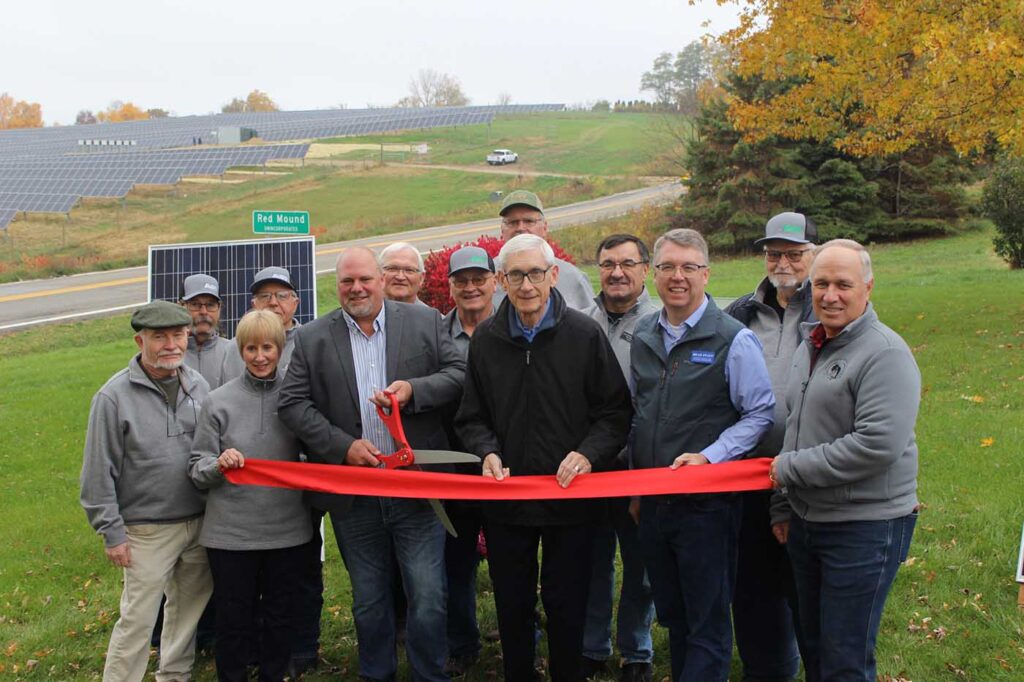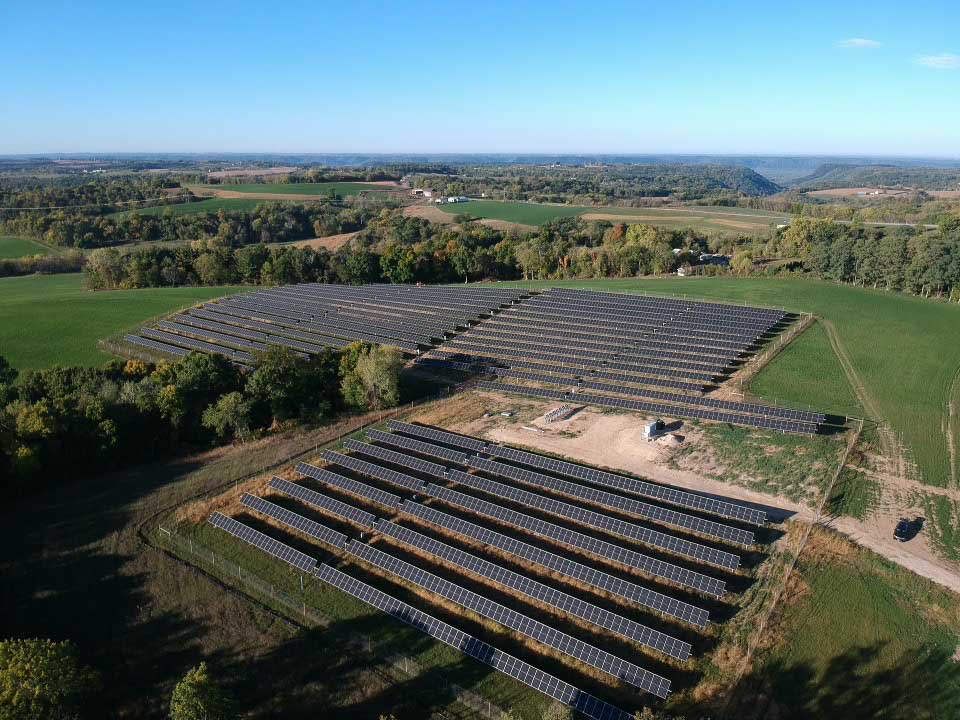
When Vernon Electric Cooperative began working on the Bluff Prairie Community Solar project in Wisconsin, it wanted to benefit as many members as possible, including those with limited means.
Noting the popularity of its first solar project in 2014, “our members liked the idea of participating in local community solar generation, but oftentimes, these projects require a premium price to participate,” said Craig Buros, CEO and general manager of Westby-based Vernon EC.
The co-op came up with an innovative solution involving multiple partners to provide affordable solar energy in a state where 25% of co-op households earn less than $35,000 a year, according to 2021 Energy Information Administration data.

The 3,200-panel, 1.5-megawatt Bluff Prairie array that came online near Red Mound last October is the co-op’s second community solar installation. Of about 2,160 panels available for community solar subscriptions, about 20% are dedicated to eligible low- and moderate-income member households through a program called Energize Wisconsin.
Each of the 137 income-eligible Vernon EC participants receive four free panel subscriptions for an annual estimated savings of $224, or more than 3,800 kilowatt-hours. The remaining panels cost $50 each and are available only to co-op members.
All of the Energize Wisconsin panels and more than 55% of the fee-based panels are leased.
“The response from our community, with 1,375 out of 2,162 panels already subscribed to, truly reflects the success and strong support garnered by the Bluff Prairie Community solar project among our members,” Buros said.
A local community action agency, Couleecap Inc., works with the co-op on the low-income carve-out. Using a $250,000 state grant, the agency buys a bulk subscription of 550 panels, which enables low-income members with high energy expenses to sign up for free. Households receiving energy assistance with certain incomes were automatically enrolled.
“In our community, low-income households pay between 12% to 30% of their income on electricity bills…that’s a tremendous energy burden,” said Couleecap Executive Director Hetti Brown. She said prospective clients especially liked “that their energy would be produced locally and that a community garden would be built in their community.”
The Bluff Prairie project is also part of a multi-co-op partnership with OneEnergy Renewables, a developer in Madison. By teaming together, Vernon EC, nine co-ops and the developer achieve economies of scale for a dozen solar arrays across the state, which are all in varying degrees of completion.
Pierce Pepin Cooperative Services is one of the co-op partners with a specific low-income focus. It will open a portion of its 2-MW installation near its Ellsworth headquarters for low-income subscribers later this year. The co-op is working with the West Central Wisconsin Community Action Agency.
“We are looking forward to providing access to renewable energy for our [low- and moderate-income] members that historically have challenges to accessing affordable renewable energy,” said David Chavie, the co-op’s energy innovation and operational technology manager.
All combined, the dozen projects will add 22 MW of new solar generation in Wisconsin—enough electricity to light up 4,000 homes.
“Cooperation among cooperatives is our guiding principle for this project,” Buros said. “By coordinating the timing of our local solar project with other cooperatives, we get a better price and return on our investment for our members.”
Victoria A. Rocha is a staff writer for NRECA.